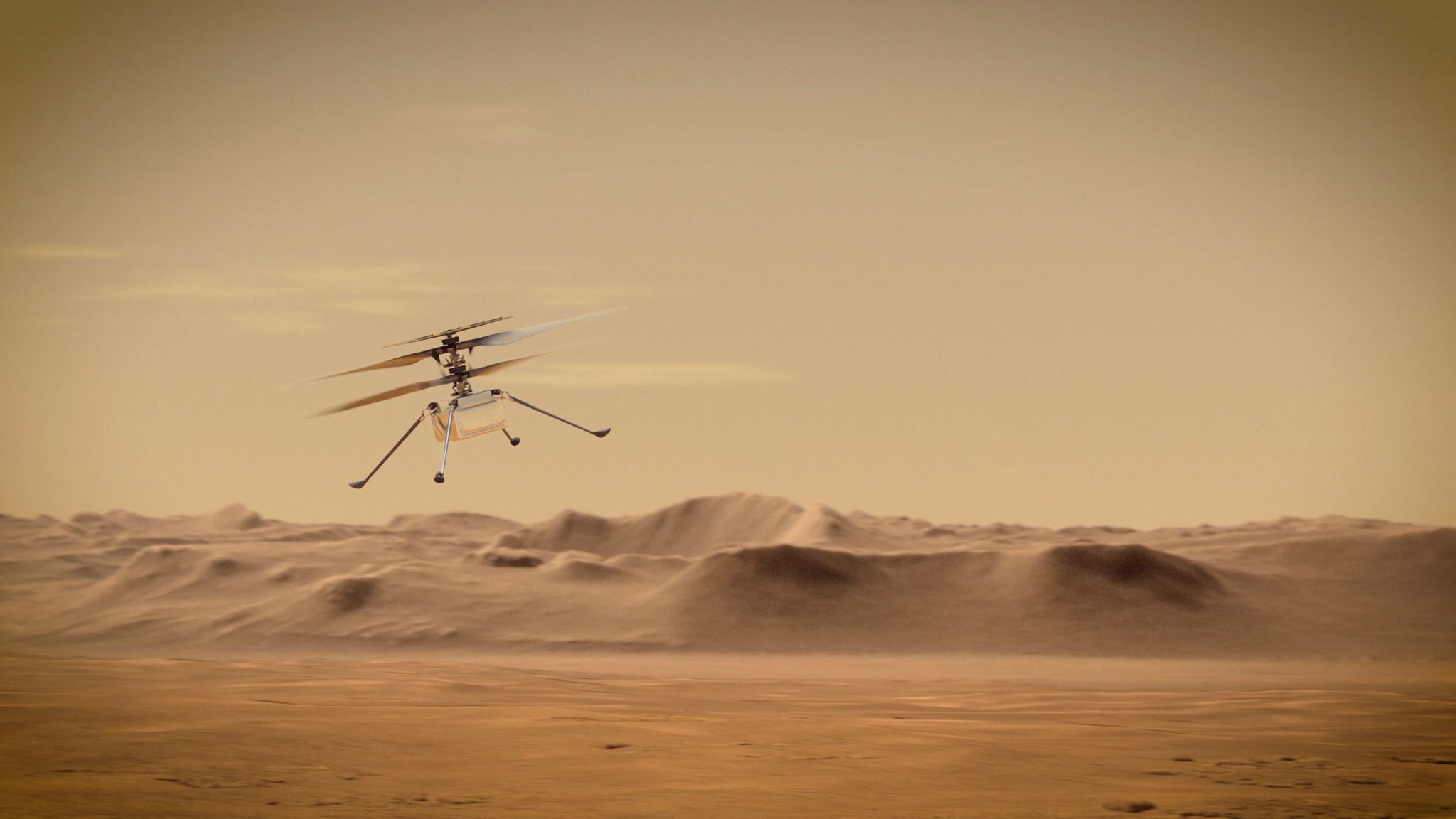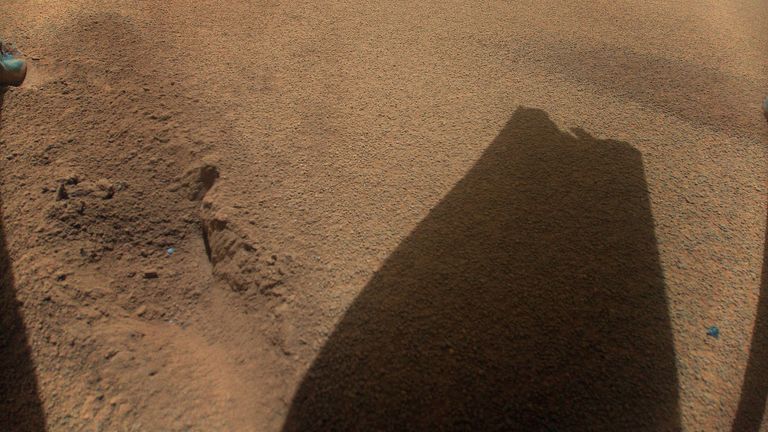Ingenuity helicopter's Mars mission over after rotor blade damage, says NASA
NASA's mini helicopter Ingenuity has made its last flight on Mars after one of its rotor blades was damaged.
It's been on the Red Planet since February 2021, and two months later achieved the milestone of the first powered, controlled flight on another planet.
ngenuity has flown 72 flights for a total of 11 miles - 14 times further than planned in what was originally intended to be a 30-day mission.
The solar-powered aircraft was a big success for NASA and helped identify locations for the Perseverance rover that accompanied it.
However, NASA boss Bill Nelson said on Thursday its mission was now over after an image from its camera appeared to show the broken rotor.
The damage apparently happened when it came in to land earlier this month, with the craft temporarily losing contact with Perseverance during the incident.
"We're investigating the possibility that the blade struck the ground," Mr Nelson said.
The copter is still upright and in contact with flight controllers, but NASA said the Perseverance rover was currently too far away to photograph its final resting place.
"While we knew this day was inevitable, it doesn't make it any easier to announce the end of the mission," said Lori Glaze, director of NASA's planetary science division.
"It's almost an understatement to say that it has surpassed expectations."




No comments:
Post a Comment